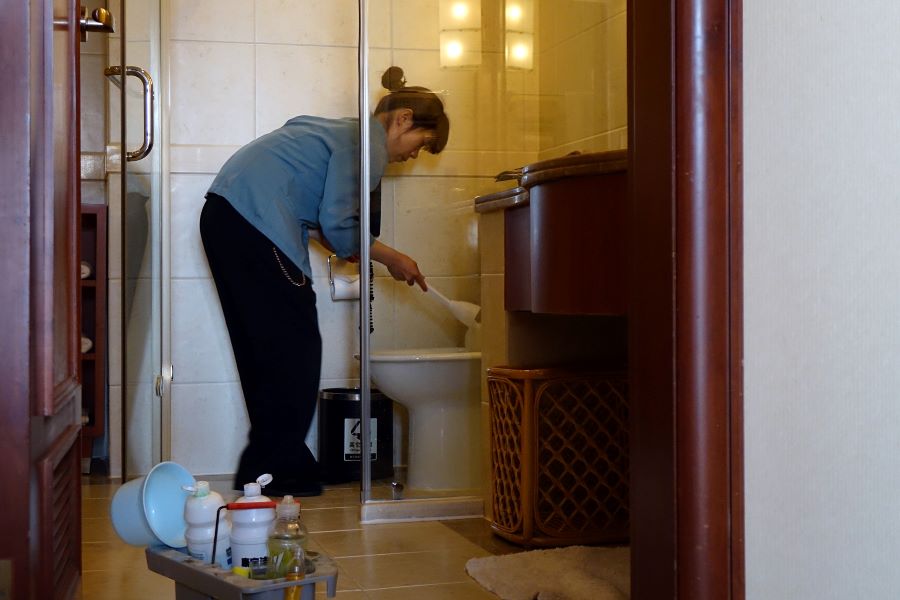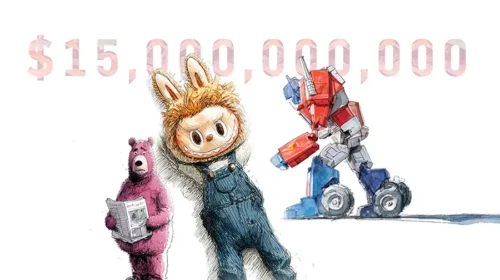Daojia Chases Unicorn Status on China’s Growing Thirst for Maids, Nannies

Provider of domestic workers to nation’s expanding middle class files for New York IPO with initial fundraising target of $100 million
Key points:
- Domestic worker provider Daojia is unlikely to attain a market value of $1 billion in its upcoming IPO due to its relatively small size
- Company could become more attractive as it shifts from providing domestic workers to higher-margin training services
By Doug Young
Private education companies have been in a state of limbo for much of the last year, as China gets set to rein in the group to ease pressure on the nation’s stressed-out youth. But one sub-group that’s remained above the fray is adult education companies, since their service is typically aimed at helping working-age adults boost their chances in the job market.
Daojia Ltd. is one such company that’s just filed for a U.S. listing, billing itself as the leading provider of maids, nannies and other domestic workers to millions from China’s growing middle class.
This company is still relatively small, and looks unlikely to get “unicorn” status, defined as a market value of $1 billion or more, when investors give it a final valuation. What’s more, the company might be better defined as an employment agency in its current form rather than an education services provider, as it now derives the majority of its revenue by providing domestic workers to households.
But the young company’s business mix is rapidly changing as it seeks out the best niche in which to operate, and education services is clearly the fastest-growing piece of its pie.
To understand the environment where Daojia operates, it’s helpful to look at the bigger picture in China for this kind of domestic worker. Such workers are typically immigrants from the nation’s smaller cities and rural areas who usually move to big cities in search of jobs. Their employers are typically young white-collar workers from China’s growing middle class.
The education level of such workers varies widely, and even things like language can’t be taken for granted as many of these people speak local Chinese dialects and only heavily accented Mandarin, or Putonghua. Such people may have some basic housecleaning, child care and other relevant experience, though the standards can vary widely and may often be below what big city residents expect.
That’s where a company like Daojia provides value, helping to bring some standardization to domestic workers. It can also offer customers some peace of mind by acting as a guarantor in case conflicts arise between household employers and their domestic workers.
Since starting operations seven years ago, the company has grown to become the “largest one-stop home services platform in China,” it says in its prospectus filed last Friday. It adds it now has more than 1.5 million registered and verified service providers on its platform.
The actual number of workers placed by Daojia in individual homes is quite a bit smaller, with the company saying 458,727 of its workers had completed at least one home services transaction between 2018 and March this year. That represents 29% of such transactions over that period, the prospectus says, citing third-party research.
Despite the company’s relatively small size, which we’ll discuss in more detail shortly, its IPO still looks relatively large. That probably reflects Daojia’s hopes for a big valuation as demand grows for domestic workers with the rise of China’s middle class. The listing’s underwriters include JPMorgan, UBS and CICC, and its major backers include the heavyweight pair of 58.com, often called the “Craig’s List of China,” and Taobao, the eBay-style C2C unit of e-commerce giant Alibaba.
Daojia has given an initial fundraising target of $100 million in its prospectus. While that figure is commonly used and is often called a “placeholder,” it’s also usually indicative of companies that think they at least have the potential for attaining a “unicorn” valuation.
Shifting Pie
With all that background in mind, we’ll spend the rest of our time looking at the company’s financials and some peers to try and determine where it might ultimately get valued.
The company’s core business comes from its middleman role of providing nannies, maids and other domestic workers to urban residents. But as we’ve noted above, revenue from paid training services is also increasingly important. Daojia also gets some money from making its platform available to smaller rivals who can use its software to manage their own businesses. But that software as a service (SaaS) part of its business is rapidly shrinking.
The company’s revenue grew 16.4% last year to 711 million yuan ($110 million), which isn’t bad considering the severe challenges it faced in the first half of 2020 during the height of China’s Covid-19 outbreak. A better indicator of its potential is probably 2019, when revenue grew by a stronger 53.3%.
Within those big figures, revenue from training services grew from just 2.2% of the company’s total in 2019, the year it launched such services, to 7.1% in the first quarter of this year. At the same time, the contribution of revenue from its SaaS business shrank from 9.8% of the total in 2018 to just 2.1% in the first quarter of this year.
Daojia is still losing money, though the losses are relatively stable. Its net loss of 615 million yuan in 2020 was roughly unchanged from 2019. It lost money at a similar rate in this year’s first quarter, posting a 144 million yuan loss for the period.
In terms of valuation, adult education providers may be some of the best comparables for a company like Daojia. Private providers of primary education are also a useful yardstick, as they are unlikely to be much affected by the sector crackdown that is mostly focused on providers of online extracurricular classes.
China East Education, a provider of vocational classes that is growing slowly and lost money last year, trades at a price-to-sales (P/S) ratio of 5.6 based on 2020 revenue. Hailiang Education, which runs private schools and is growing more moderately, trades at a lower 3.8, while U.S.-based peer Strategic Education trades at 1.9.
A more China-style P/S would value Daojia in the $500 million to $700 million range, which seems relatively justified based on the company’s return to 38% revenue growth in this year’s first quarter. Unicorn status looks like a bit of a stretch given the company’s current size. But perhaps it feels its leading position in a relatively high-growth space, combined with its backing from 58.com and Alibaba, could justify such a big premium.
To subscribe to Bamboo Works weekly free newsletter, click here





